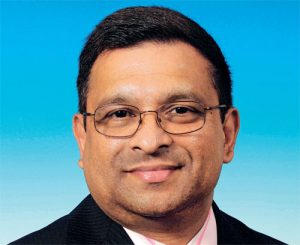A crisis of identity By Aubrey Joachim
 Last night all Australians would have filled in their census data. In a few months the Australian Bureau of Statistics (ABS) would have churned out the analytics that paint a picture of the nation. No doubt the insights will reveal a changing demographic of a nation which is a kaleidoscope of migrants from all parts of the world who have left behind cultures, languages and hopefully their petty differences to enjoy the privileges of a first-world nation and transform into a single Australian identity going forward.
Last night all Australians would have filled in their census data. In a few months the Australian Bureau of Statistics (ABS) would have churned out the analytics that paint a picture of the nation. No doubt the insights will reveal a changing demographic of a nation which is a kaleidoscope of migrants from all parts of the world who have left behind cultures, languages and hopefully their petty differences to enjoy the privileges of a first-world nation and transform into a single Australian identity going forward.
As has been seen from past ABS statistics – and surely from this current census – Sri Lankans come out very favourably in the context of English speaking capability, educational qualifications, professional competencies, employability, job positions and income earning levels. These are laudable performance criteria that project the image of a migrant community that is positively contributing to the future of Australia. They also contribute to influencing the intake of future Sri Lankan migrants to the country. Therefore these are the qualities that we should be flaunting and encouraging the younger members of the Sri Lankan community to build an identity around.
However, a disturbing development to note during the lead up to the recent census was intimation from various Sri Lankan groups to proactively identify particular language preferences when filling up the census data. While there is nothing wrong with identifying multi-lingual households, the disturbing element of the messages was that doing so would help younger Sri Lankans create an ‘identity’ of their own. Really? Have we as a community not realised that it was this warped mindset of ‘language identity’ that divided our once beautiful and peaceful homeland of Ceylon? Aren’t there reconciliation moves even in Sri Lanka to shift away from that mindset and teach the next generation both local languages as well as the global English language? Disappointingly even Lankan organisations focussed on promoting religious ideals are guilty of having promoted such divisive thinking. Should it not suffice that identifying ourselves under the common banner of SRI LANKANS is good enough – even if the intent was to attract attention for the purpose of grant funding, lobbying etc?
One key difference between Sri Lankan migrants and those from other lands is that we do not form enclaves. This aspect has always projected a favourable perspective of our community as being one which integrates into the Australian lifestyle. It is very pleasing to observe the Australian educated children of some Sri Lankan migrants out-performing their parents in English language capabilities – which perhaps is a reason for a forced Sri Lankan vernacular in the home. But how long will this continue? Increasingly it is seen that the children of Sri Lankan migrants now marrying into other cultures, religions and languages. This is influencing a changed mindset in the family. The once Sinhala or Tamil speaking households are realising that the common English language is becoming the language of choice if their children’s’ spouses and grand-children are to be included as part of the family.
Getting back to creating a future identity for the next generation Sri Lankans it is not a minority vernacular language that cements their identity but how well we carve a niche in the wider Australian landscape. Should not the heights of achievement of Australians of Sri Lankan background such as the high profile corporate personalities, academics, professionals like doctors, engineers, accountants and the like as well as the doyens of business and entrepreneurship set the ideals that our Sri Lankan Children should strive to emulate? This is an identity that will be worth striving for in order that the Australians of Sri Lankan heritage will grow from strength to strength and reach even greater heights.
Let’s leave the baggage and divisions that caused many migrants to seek new pastures in Australia and embrace a new common and unique identity no matter what ethnic or language backgrounds we came from. Let us not force upon our children a crisis of identity that beset our beautiful motherland Sri Lanka!







